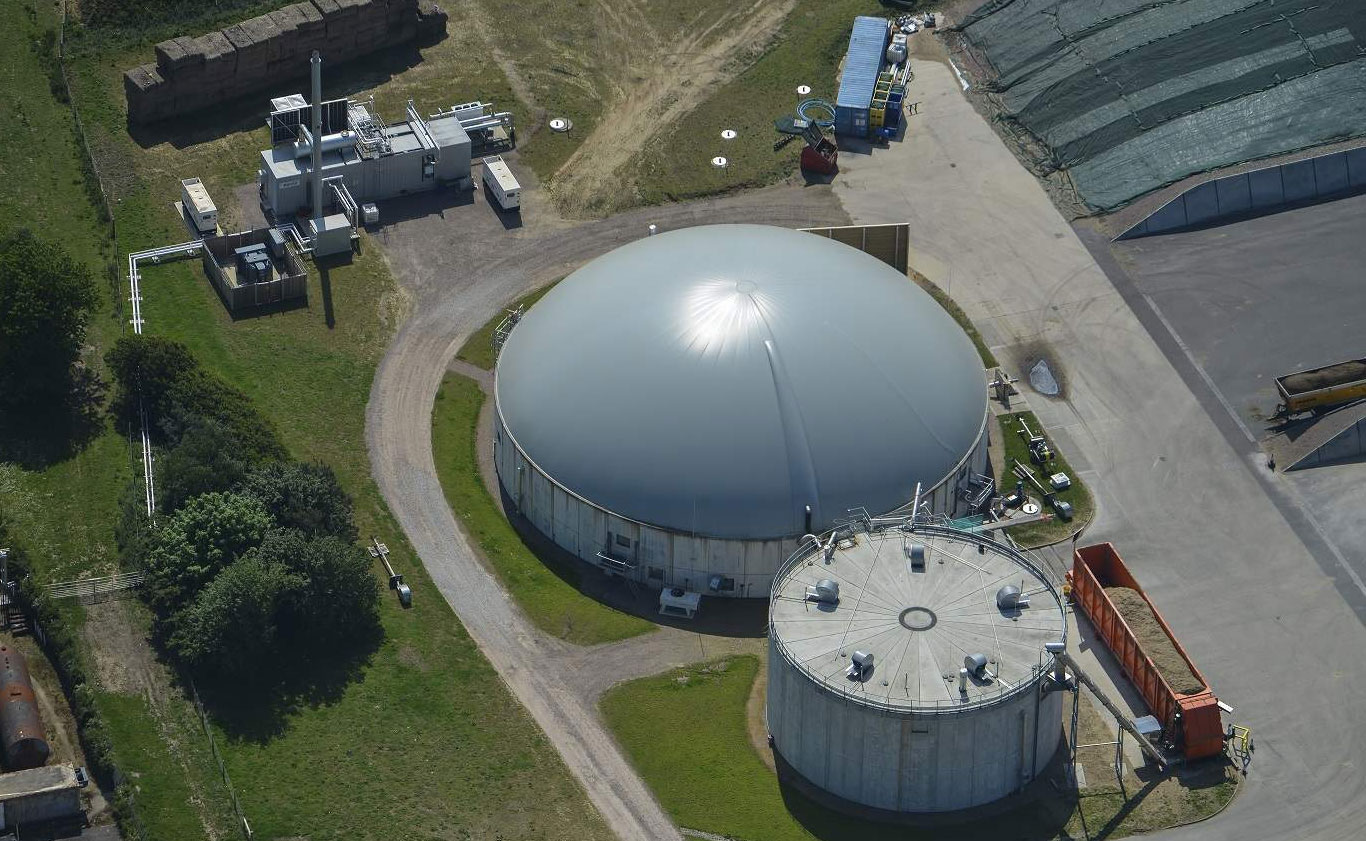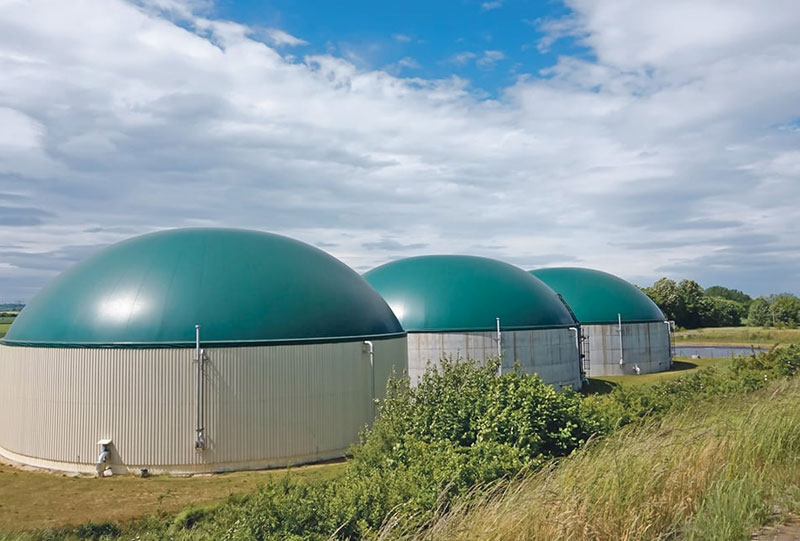
Advantages of Bio Gas Domes
 Biogas is also known as gobar gas. The gases produced by anaerobic decomposition of organic matter such as manure, municipal waste, plant material, agricultural waste, cow dung, sewage, food waste, green waste etc. are called biogas. Thus, biogas is not a one gas but instead it is a mixture of gases.
Biogas is also known as gobar gas. The gases produced by anaerobic decomposition of organic matter such as manure, municipal waste, plant material, agricultural waste, cow dung, sewage, food waste, green waste etc. are called biogas. Thus, biogas is not a one gas but instead it is a mixture of gases.
Carbon dioxide and methane make up the majority of biogas. It is a source of renewable energy. Biogas is created when organic matter decomposes through a process known as anaerobic digestion.
In the absence of oxygen, microbes break down the plant or animal waste, releasing gases such as carbon dioxide and methane. Renewable energy sources are gaining popularity around the world. Biogas output is gradually increasing as more people set up biogas plants to generate fuel.
Cow dung is the main source for production of biogas as it contains many bacteria naturally which help in anaerobic decomposition of organic matter. This is the reason biogas is called gobar gas. Cow dung contains methanobacterium which is found in the rumen of the cow's digestive system. Methanobacterium not only produces methane gas but manure as well by decomposition of bio waste.
Uses of Biogas
- It is commonly used in rural areas as cooking gas.
- It can be used for the production of electricity.
- It can be used in instruments used for water heating, space (room) heating etc.
- It can replace compressed natural gas for use in vehicles.
- It can displace carbon dioxide in on-site CHP plants.
- It is being used in transport. For example, ‘Amanda Biogas Train’ runs on biogas in Sweden.
- Production of biogas produced a very useful dry solid byproduct which is used as manure.
- It is used in many states for street lighting purposes.
- It can be used in hydrogen fuel cells as well.
- Unlike other sources of renewable energy, the process of producing gas is natural and does not require energy. Furthermore, because trees and crops will continue to grow, the raw materials utilised in biogas generation are renewable. Manure, food scraps, and agricultural residue are all readily available raw materials, making it a very sustainable solution.
- Overflowing landfills not only disperse bad odours but also allow poisonous liquids to leak into underground water supplies. As a result, another benefit of biogas is that it can help to enhance water quality. Anaerobic digestion also deactivates germs and parasites, making it an efficient way to reduce the spread of waterborne infections. Similarly, in places with biogas facilities, garbage collection and processing improve dramatically. As a result, the environment, cleanliness, and hygiene are all improved.
- Biogas don’t pollute the environment. Thus, it is an eco-friendly fuel.
- It is a renewable source of energy.
- It reduces soil, water and air pollution.
- It produces organic manure as a byproduct.
- As it is a low-cost method to produce energy, it is economically friendly as well.
- It encourages a circular economy and is beneficial for all classes.
- It is a healthy cooking alternative specially for developing countries.
Know More About - Bio Gas Domes
Get Your Free Quote Today!
